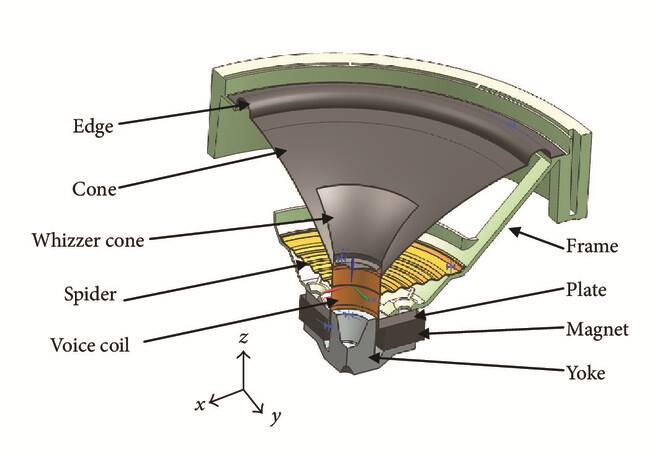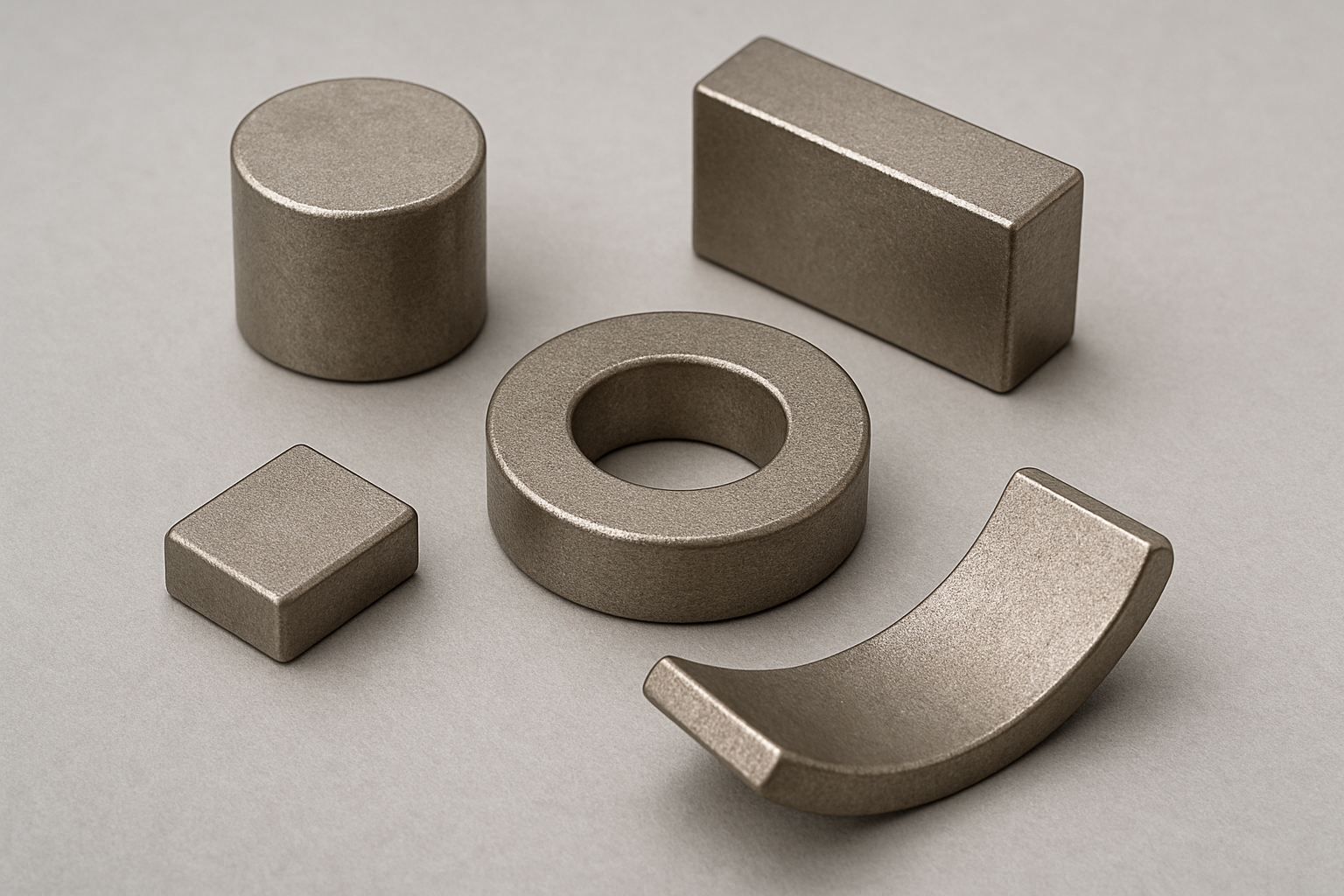What Are SmCo Magnets?
Magnets are very useful in our lives. For example, they can be used on speakers, motors, and electronic instruments, etc. There are many types of magnets available on the market today. Depending on their material, magnets can be divided into ferrite magnets, neodymium magnets, SmCo magnets, and AlNiCo magnets.
In our last article, we've introduced what is a ferrite magnet. So in today's article, let's figure out what are SmCo magnets.

What Are SmCo Magnets?
Samarium cobalt magnet is a rare earth magnet. It is made from samarium, cobalt, and other metal rare earth materials through mixing, smelting into an alloy, and then crushed, pressed, and sintered. SmCo magnets have a high magnetic energy product and extremely low temperature coefficient. Their maximum operating temperature can reach 350℃. When the working temperature is above 180℃, their maximum magnetic energy product (BHmax), coercivity, temperature stability, and chemical stability all exceed those of the NdFeB permanent magnet materials.
Applications of SmCo Magnets
Thanks to SmCo magnets' strong corrosion, heat, and oxidation resistance, they are widely used in aerospace, defense, and military industries, microwave devices, communications, medical equipment, instruments, meters, various magnetic transmission devices, sensors, magnetic processors, motors, magnetic cranes, etc.
Here’s a concise list of SmCo magnet applications:
-
Aerospace & Defense: Jet engines, missile guidance, actuators.
-
Automotive: Sensors, electric motors, fuel pumps.
-
Industrial: Magnetic couplings, generators, high-temp motors.
-
Medical: MRI-compatible tools, implantable devices.
-
Electronics: Sensors, gyroscopes, microwave components.
-
Energy & Marine: Oil exploration tools, underwater systems.
Basic Parameters of SmCo Magnets
|
Parameter |
Value Range |
|
Maximum Magnetic Energy Product (BHmax) |
160–1500 kJ/m³ (15–35 MGOe) |
|
Maximum Working Temperature (Tw) |
250–350°C |
|
Intrinsic Coercive Force (HcJ) |
650–2400 kA/m |
|
Magnetic Coercivity (Hcb) |
650–870 kA/m (4–12 kOe) |
|
Remanence (Br) |
8–12 kG (0.8–1.2 T) |
|
Reversible Temperature Coefficient of Remanence (Br) |
-0.04 to -0.01 (%/°C) |
Pros & Cons of SmCo Magnets
Pros 1. High magnetic strength and coercivity. 2. Good temperature stability (maximum service temperature is 250 to 550℃; Curie temperature is from 700 to 800℃). 3. Outstanding corrosion resistance.
SmCo magnets have excellent thermal stability and can operate at temperatures up to about 350°C without losing their magnetism. They offer high magnetic strength and strong resistance to demagnetization. These magnets are highly resistant to corrosion and usually do not require protective coatings. They also maintain stable magnetic performance over long periods.
Cons 1. Expensive and susceptible to price fluctuations. 2. SmCo magnets can easily shatter. You must wear goggles when handling them.
However, SmCo magnets are brittle and can chip or break more easily than other types of magnets. They tend to be more expensive compared to ferrite and some neodymium magnets. Their maximum magnetic strength at room temperature is lower than that of neodymium magnets. Additionally, the brittleness makes SmCo magnets difficult to machine or shape.
Latest Research on SmCo Magnets
In 2012, Toshiba Corporation of Japan developed a high iron concentration SmCo magnet for engines. This magnet is completely free of the rare earth element dysprosium, but its magnetic force is stronger than the heat-resistant neodymium magnets widely used now. The newly developed high iron concentration samarium cobalt magnet uses heat treatment technology independently developed by Toshiba. This makes the samarium cobalt magnet, which is originally inferior to the neodymium magnets in terms of magnetic force, possess a stronger magnetic force than the heat-resistant neodymium magnet in an environment above 100 degrees Celsius.
To increase the magnetic force, the researchers increased the weight ratio of iron in the magnet from the original 15% to 20% - 25% and adjusted the temperature, time, and pressure during sintering to achieve the best state, thereby reducing the effect of oxides and other factors that hinder the increase of magnetic force. At the end of 2012, this new magnet was already on the market.
Conclusion
Thank you for reading our article and we hope it can help you know what are SmCo magnets well. If you want to know more about SmCo magnets, we would like to recommend you visit Stanford Magnets for more information.















